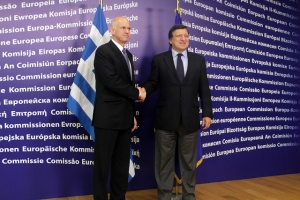Support migrant centric journalism today and donate

 • Media Center » Video Immigration News
• Media Center » Video Immigration News
The United Kingdom has published figures showing the number of workers from the new central and eastern European Union member states that joined in 2004 and 2007. According to the Home Office, the figures show a decrease in Worker Registration Scheme (WRS) applicants for the period of October through December 2007, compared to the same time last year.
In 2004 eight former Communist nations joined the European Union (Estonia, Latvia, Lithuania, the Czech Republic, Slovakia, Slovenia, Poland, and Hungary). The UK was one of the few existing EU member states to open its labor market to these so-called A8 nations. Thousands of workers, many from Poland, came to the UK to find work.
Between October and December 2007, the Home Office received 50,000 WRS applications from A8 nationals, a 23 percent decrease from the 65,000 applications received during the same period in 2006. During 2007 as a whole, the Home Office received 214,510 WRS applications from A8 nationals, down from the 234,725 received during the whole of 2006.
In response to the higher than expected amount of immigration from the A8 nations, the UK instituted labor restrictions for nationals of Bulgaria and Romania when the two countries joined the EU in 2007. However, Bulgarians and Romanians were granted access to schemes such as the Sectors Based Scheme and the Seasonal Agricultural Workers Scheme. They could also work as self-employed individuals in the UK.
In 2007, 30,570 Bulgarian and Romanian nationals were granted permission to work in the UK. An additional 7,295 were issued permission to work under the Seasonal Agricultural Workers scheme.
The UK will continue to restrict its labor market to the two newest members of the 27-member bloc. According EU treaties, the UK can restrict its labor market to Bulgarian and Romanian nationals until 2014.
"It is too soon to evaluate the full impact of the accession of Bulgaria and Romania to the EU which is why we decided to maintain restrictions for at least another year," said Immigration Minister Liam Byrne. "Our indications are that the policy of restricting access to the UK's labour market is helping to ensure that only those who have something to offer the UK are allowed to work here."





















